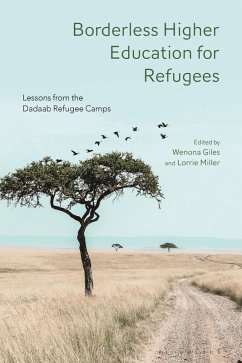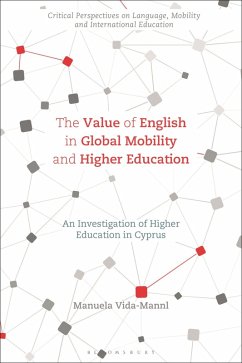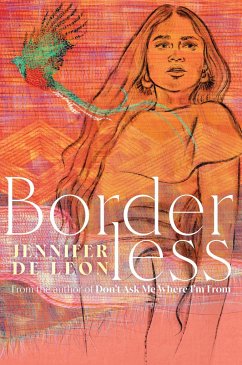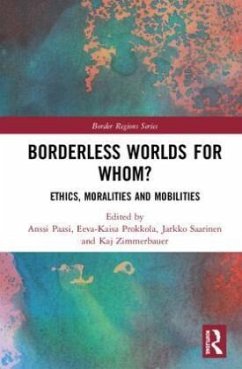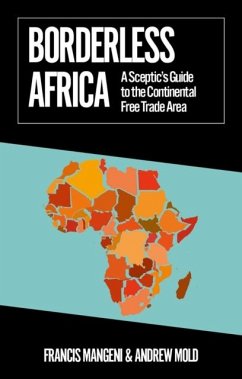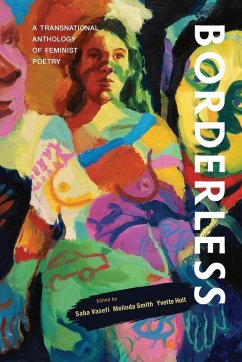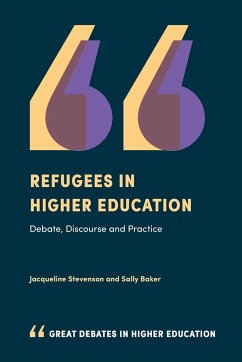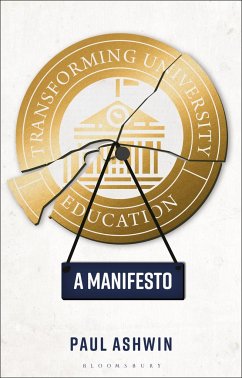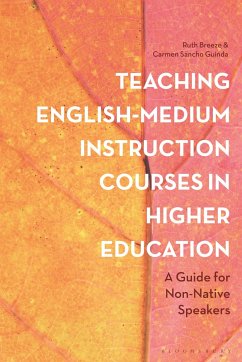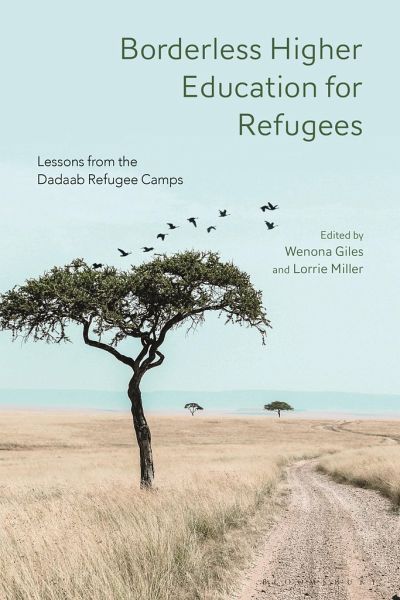
Borderless Higher Education for Refugees
Lessons from the Dadaab Refugee Camps
Herausgeber: Miller, Lorrie; Giles, Wenona
Versandkostenfrei!
Versandfertig in 2-4 Wochen
37,99 €
inkl. MwSt.

PAYBACK Punkte
19 °P sammeln!
Winner of the 2022 CIES Jackie Kirk Outstanding Book Award Higher education is increasingly recognized as crucial for the livelihoods of refugees and displaced populations caught in emergencies and protracted crises, to enable them to engage in contemporary, knowledge-based, global society. This book tells the story of the Borderless Higher Education for Refugees (BHER) project which delivers tuition-free university degree programs into two of the largest protracted refugee camps in the world, Dadaab and Kakuma in Kenya. Combining a human rights approaches, critical humanitarianism and a conce...
Winner of the 2022 CIES Jackie Kirk Outstanding Book Award Higher education is increasingly recognized as crucial for the livelihoods of refugees and displaced populations caught in emergencies and protracted crises, to enable them to engage in contemporary, knowledge-based, global society. This book tells the story of the Borderless Higher Education for Refugees (BHER) project which delivers tuition-free university degree programs into two of the largest protracted refugee camps in the world, Dadaab and Kakuma in Kenya. Combining a human rights approaches, critical humanitarianism and a concern with gender relations and intersecting inequalities, the book proposes that higher education can provide refugees with the possibility of staying put or returning home with dignity. Written by academics based in Canada, Kenya, Somalia and the USA, as well as NGO workers and students from the camps, the book demonstrates how North-South and South-South collaborations are possible and indeed productive.



